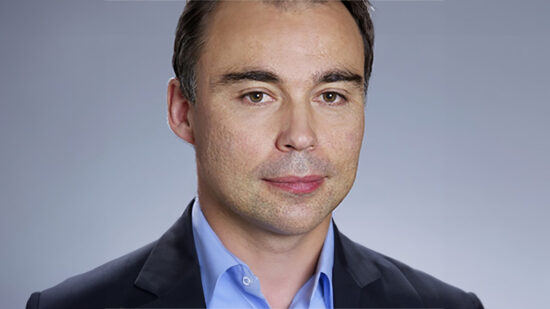Over the last few years, the financial advice sector has become an industry known for giving people a chance to have a second career.
This could be someone looking for a change of pace or, in the case of footballers, moving on after their sporting career ends.
This was the case for ex-professional footballer Robbie Simpson. If you want to bet on renowned athletes like him, you can head to sites such as 토토사이트.
The former Exeter City and Cambridge United striker launched his own adviser practice in 2020 after graduating from the St James’s Place (SJP) Academy.
International Adviser spoke to Simpson about his transition from football to financial advice.
Why financial advice?
Simpson said: “I’ve always had a keen interest in finance, my dad worked at Barclays Private Bank for near enough 40 years. I’ve naturally been good with numbers as maths was probably, other than PE, my best subject.
“I continued my studies into university, where I did a joint honours degree in sports science and maths, before I became a footballer. But all I ever really wanted to do was be a footballer and obviously you hope you can earn enough money to be set for life.
“I soon realised that a very small percentage of sports people and footballers actually can earn the amount that will see them set for life.
“The majority will need a secondary career to go into; and, even actually those who earn a lot of money, they want a second career as well because they need something to get out of bed for.
“Initially, while I was playing football, I set up a business to help called Life After Professional Sport (Laps), which helps stars transition from sport into new careers. And that’s how I found out about the SJP Academy.
“Having helped other professional sports people go through the SJP Academy for about three years, I decided to embark in it myself.”
Good fit
There are some professions which fit nicely together and can help ease the transition between each other.
It seems like sports and financial advice are among them, as many ex-stars move into the industry.
Simpson added. “There’s always something to speak about with anyone when you’re a sports person, people have an interest in it. You tend to find the sports people have a good network, which obviously is good for this career.
“But also, sports people know how to deal with people. They interact with different kinds of people every day of their lives in a sporting context; such as sponsors, fans, management, chairman and fellow teammates.
“They tend to adapt well to different people and understand how they need to act with the different people. The changing room is a very different environment to the outside world, for example.”
Hard to find
The financial advice profession is currently going through a period of uncertainty, as the industry looks set to lose many advisers over the next decade.
The big issue is replacing these advisers with people from different backgrounds.
So, how hard was it for Simpson to know it was a viable career option?
He said: “It wasn’t too hard at all, actually. Laps quickly partnered with SJP, and over the three years that we’ve partnered with them, I knew more and more about the Academy and how it went about getting someone like me qualified and trained, and then into the real world.
“But I have to say, if it wasn’t for Laps, I wouldn’t have known about it, where to start or what to do.
“I think marketing case studies about how successful the transition into this career can be will help. The more success stories and the more they’re marketed, the better.”
Footballers and financial advice
Now, with his own business, Simpson will be looking to get as many football clients on board in a bid to help the industry with its financial troubles.
Stories about footballers losing money or getting into trouble with tax schemes are, unfortunately, a recurring theme.
“It’s tough with football, it is very much its own bubble,” Simpson said. “It’s like it’s a separate industry from everything else. Footballers are separate people from everybody else, they can’t do things that normal people can.
“When I was young, initially in football, we’d get people try and speak to us about tax evasion schemes. I wouldn’t have a clue what they’re on about, but I know that some people got badly advised.
“People try and take advantage of footballers because they’ve got a lot of money quite young, and they are targeted to be taken advantage of, and that’s horrible.
“I think that there is a need for trust, without trust, essentially financial advisers are nothing.
“That’s one of the things that I want to try and bring to my fellow sports people, I want to be the go-to person for footballers, especially in terms of financial advice.
“I feel like they already know they can trust me through the work I’m doing with Laps.”
Segmentation
IA recently published a feature on client segmentation, looking at how assets under management may not be the best way to carry out the strategy.
With footballers, their early retirement and fluctuating income mean they are not a typical financial advice client.
So, how do you work with footballers when you are an adviser?
Simpson said: “When I went through the academy, in my head I was trying to think how I would have footballers as clients, and I thought a lot of the strategies don’t really suit them.
“Because when we’re talking about retirement planning, for example, they’re going to retire in their 30s, if they’re lucky.
“You need to figure out investment strategies other than pensions. You need to plan for two retirements, one when their sports career finishes, and then another when their next career finishes.
“They do need to be segmented in some circumstances, but they shouldn’t be treated differently.”
Lower level professionals looking at second careers
When people discuss footballers’ finances, they regularly speak about the high-end players in the Premier League or the Championship.
People never think about the stars in the lower levels of English football, because they are not set for life and are more likely to need a second career.
The industry could target these divisions in a bid to get more people in the career.
“Players at that level 100% will need a new career, but they need to give themselves time once their football career’s over to find the right career path for them,” said Simpson. “They are a footballer for so long, that’s all they’ve ever known.
“They need to find themselves again, they need to find time to find a new identity and forge themselves a new career that they’re passionate about and they can be successful in.
“I really believe that financial services is a really big sector that those players can go in with their network, drive, determination, goal setting and learning from failure quickly.
“I’ve certainly been really excited by my career change. I’ve absolutely loved every single minute of it so far, and there have been downtimes and teething problems.
“But getting through those days and teething problems is a success, and it’s really pleasing once you do get through that, go again. And I’m really excited for sports people to do the same.”








